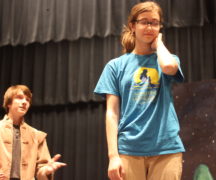By DAVID DUPONT
BG Independent News
Selecting Tim Minchin to do the music and lyrics for the musical version of Roald Dahl’s classic “Matilda” was brilliant.
Minchin built his following with cutting social and political satire underpinned with musical virtuosity, and while the commentary here is not as edgy as his comedy, that knack of taking on taboo topics underpins this tale of childhood rebellion.
“Matilda” is a celebration of defiance against unjust power. It’s a tale that will always be timely as long as bullies and despots exist.
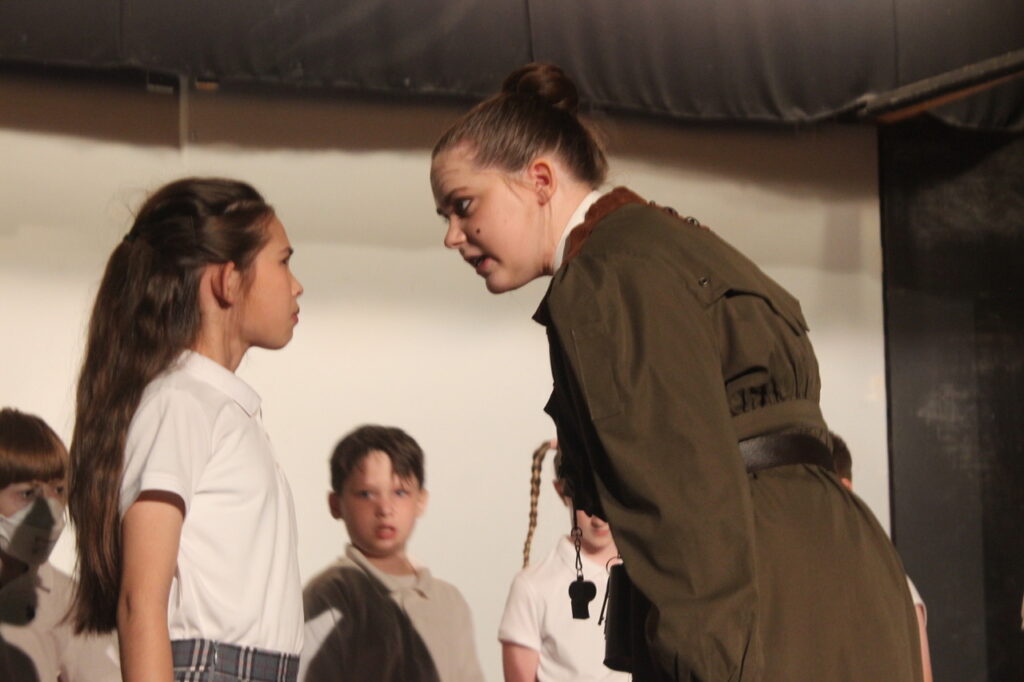
Just like the namesake hero of the musical who doesn’t let her small size stop her from revolting against the big folks oppressing her, the Horizon Youth Theatre cast is undaunted when faced with staging this challenging musical. The songs are rousing, and full of clever, occasionally tongue-twisting lyrics. Minchin loves to spin lines that are on the edge of being out of control, but never are. And he sets these over driving pop rock rhythms.
The Horizon Youth Theatre is staging “Matilda the Musical” with book by Dennis Kelly at the Town Hall Theater at 24287 Front St., Grand Rapids, June 7 and 8 at 7 p.m. and June 9 at 2 p.m. The musical is directed by Cassie Greenlee and Mikayla Trimpey with Kelly Frailly as music director. Tickets are $12 and $15 at the door or by clicking here.
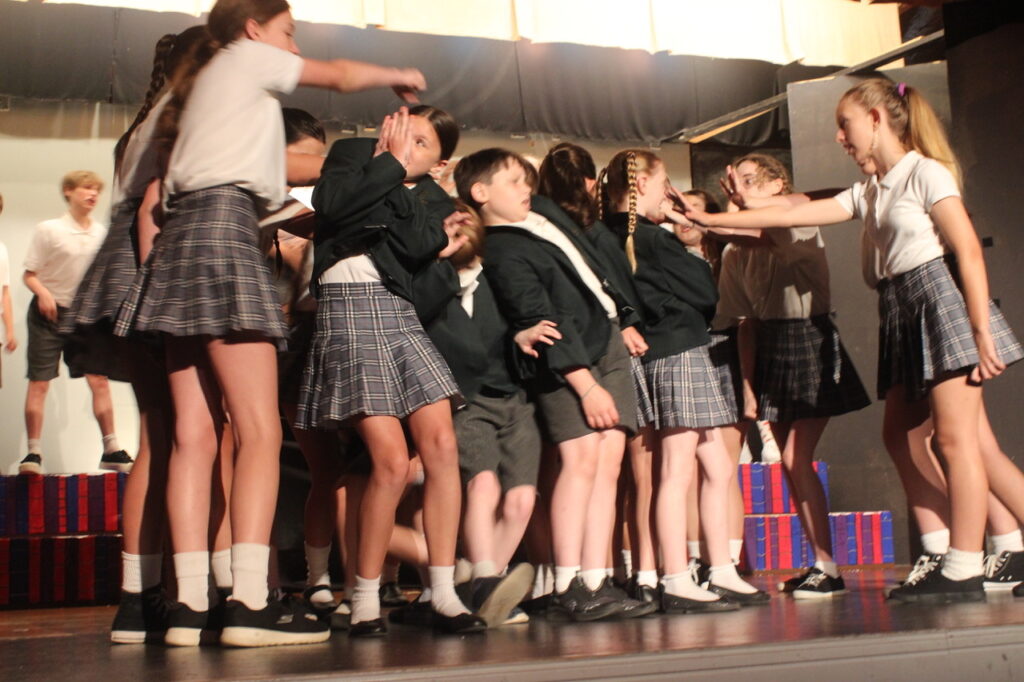
This is an undoubtedly a heavy lift for a young cast, but like the students attending the vile Miss Trunchbull’s school, they work together to tackle the challenge.
(Click for full cast listing.)
The show opens with the youngsters crowding the town hall stage singing how their parents welcomed each at birth as a “Miracle,” a sentiment I’m sure is shared by the many parents in the audience. This universal celebration of the possibility of each baby is quickly undercut as we experience the birth of Matilda.
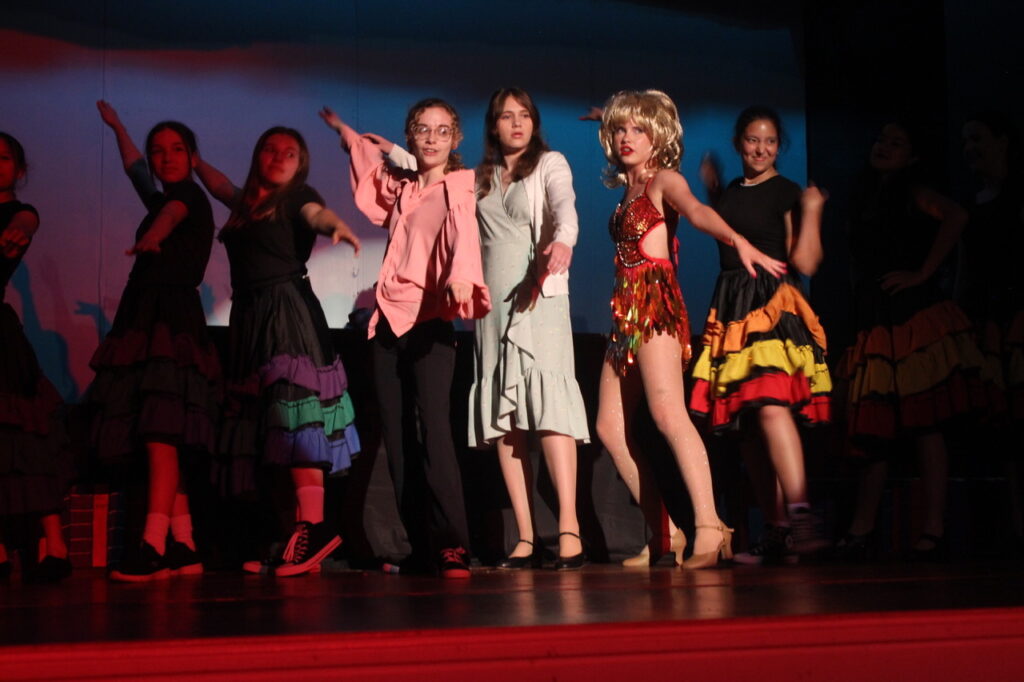
For Matilda’s mother, Mrs. Wormwood (Rose Walters), her arrival is an inconvenience as it means she’s missing competing in a ballroom dancing contest. And Matilda’s father, Mr. Wormwood (Liam Rogel) is disappointed that the baby lacks a certain “thingey.” A boy without a “thingey,” he exclaims. No, it’s a girl. That doesn’t register, and throughout he refers to her as “boy,” and Matilda (Mariko Weese) corrects him every time.
This is hardly the greatest emotional abuse she puts up with. She’s a misfit because she loves to read, while her family, especially her father, is devoted to watching “the telly.”
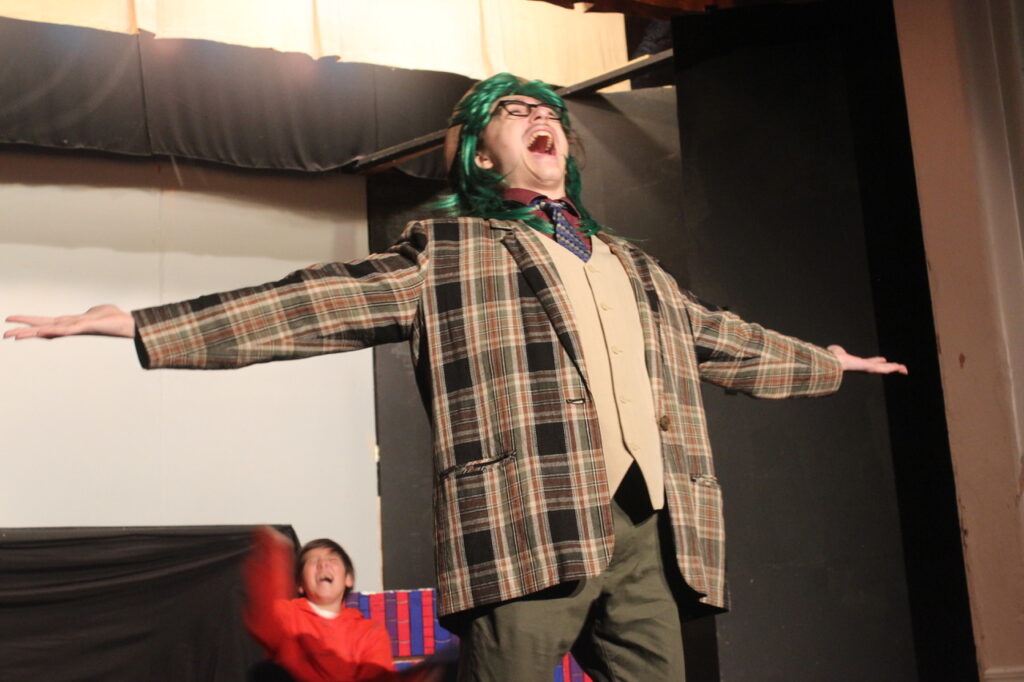
The second act even opens with his paean to the television, “All I Know.” Rogel plays the part broadly with a thick British accent.
Sitting in her chair at a remove from the rest of her family which includes her mostly mute older brother Michael (Nic Fecht), Matilda is intent on whatever book she’s reading. Her tastes are broad, though aptly she seems to favor Dickens, a clear influence on Dahl. But she doesn’t take abuse docilely. She even questions her used car dealer father’s ethics.
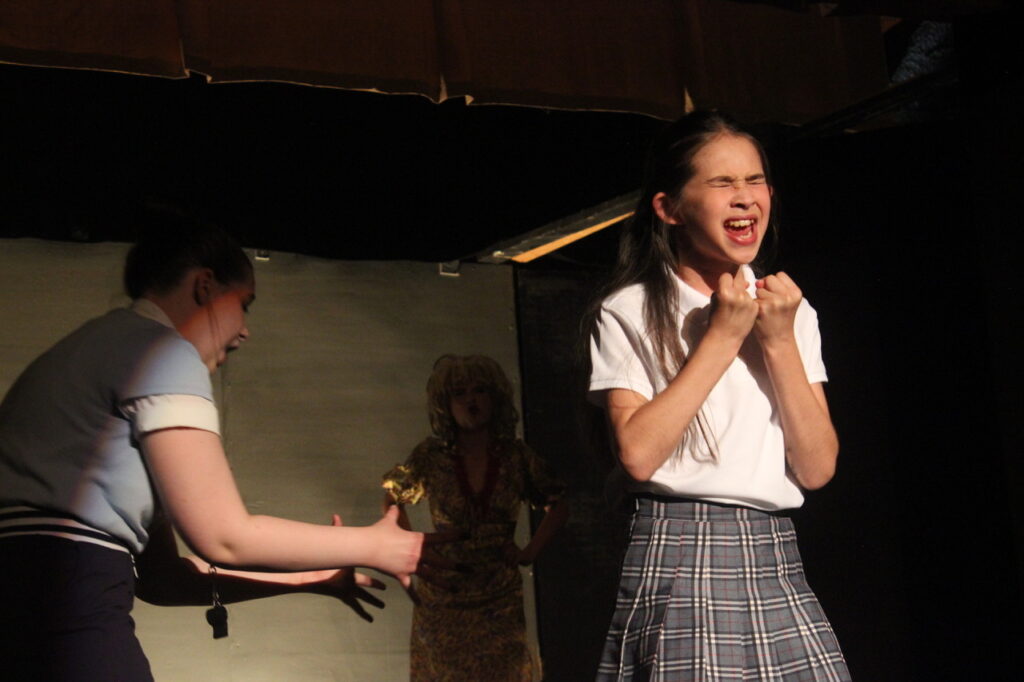
Banished to the upstairs of the house, she sings “Naughty,” an anthem of rebellion. People, even if they’re little, don’t need to put up with those wanting to keep them down. That would be tantamount to admitting it’s okay. “That’s not right,” she sings. Sometimes, you need to be a little bit naughty.
Matilda takes that attitude to school where she confronts Miss Trunchbull (Bex Lanham), a hammer throwing Olympian who is not above applying that skill to throwing children, or as she considers them, “maggots.”
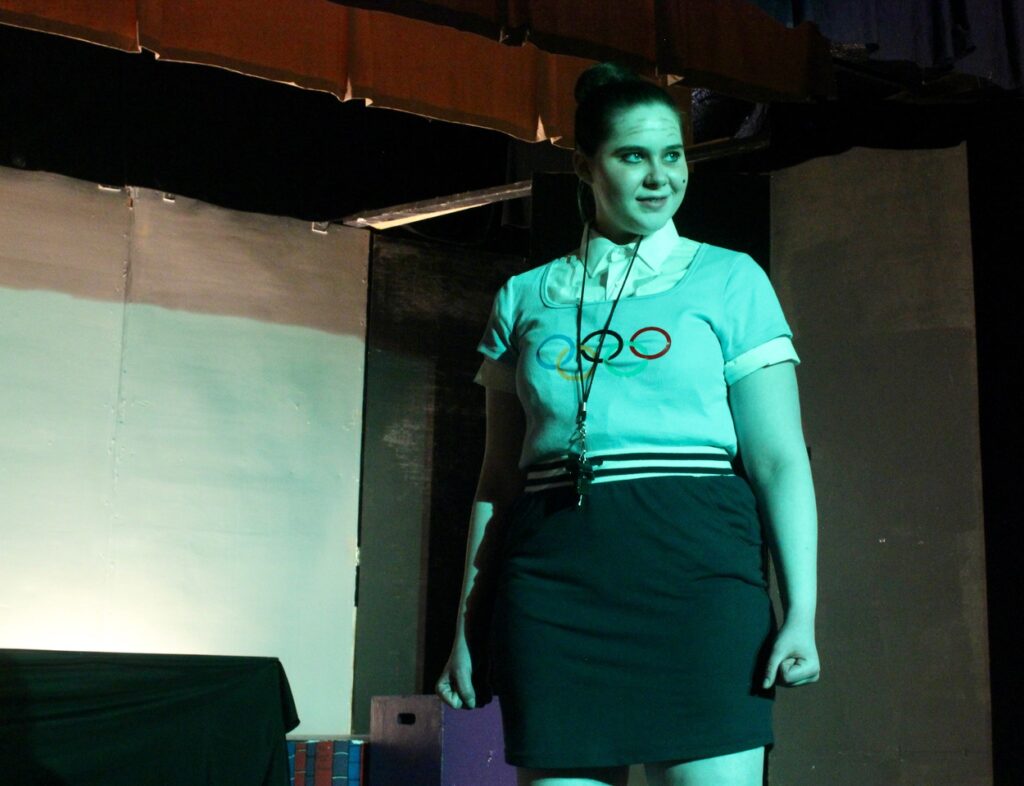
The most majestic, masochistic forms of abuse spill unimpeded from her brain. Colorful, horrid, but comic in their extremes. Children must, like a hammer-thrower, toe the line. She is more than happy to mete out colorful and degrading punishments to those who fail to do that. When Bruce (Gavin Snyder) dares snitch some of Trunchbull’s cake, she forces him to eat the entire sweet monstrosity.
Miss Honey (Reagan Otley) is Trunchbull’s opposite. She discovers Matilda’s talents not just in reading but in math. As much as the children do, she cowers before Trunchbull, afraid to even knock on her office door to tell her of the exceptional talents of Matilda, who is “a miracle,“ though her wretched parents don’t realize it.
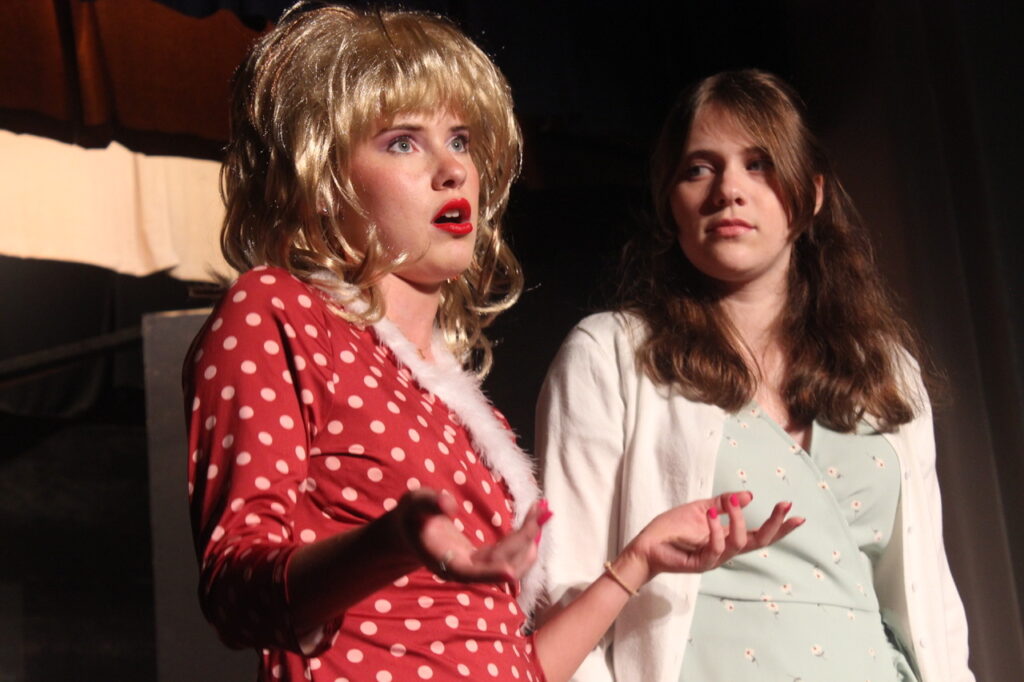
“Pathetic,” in which she expresses her trepidation, contrasts clearly with Matilda’s spunky “Naughty.”
The production casts teen actors in the adult parts, which are all caricatures. Mrs. Wormwood is unbearably vain, and her dim-bulb husband thieving and self-absorbed. There is nothing good to say about Trunchbull, as any attempt at character development shows. The actors seem to enjoy channeling their inner villains. Mrs. Wormwood’s dance instructor and partner Rudolpho (Mona Foreman) is a flash of Latin flair.
The good adults are, well, good. Miss Honey is the perfect name. Otley does wonderfully on her solo “My House,” where she expounds on the virtues of the shack she lives in. It’s in this song that the secret of her past is revealed.
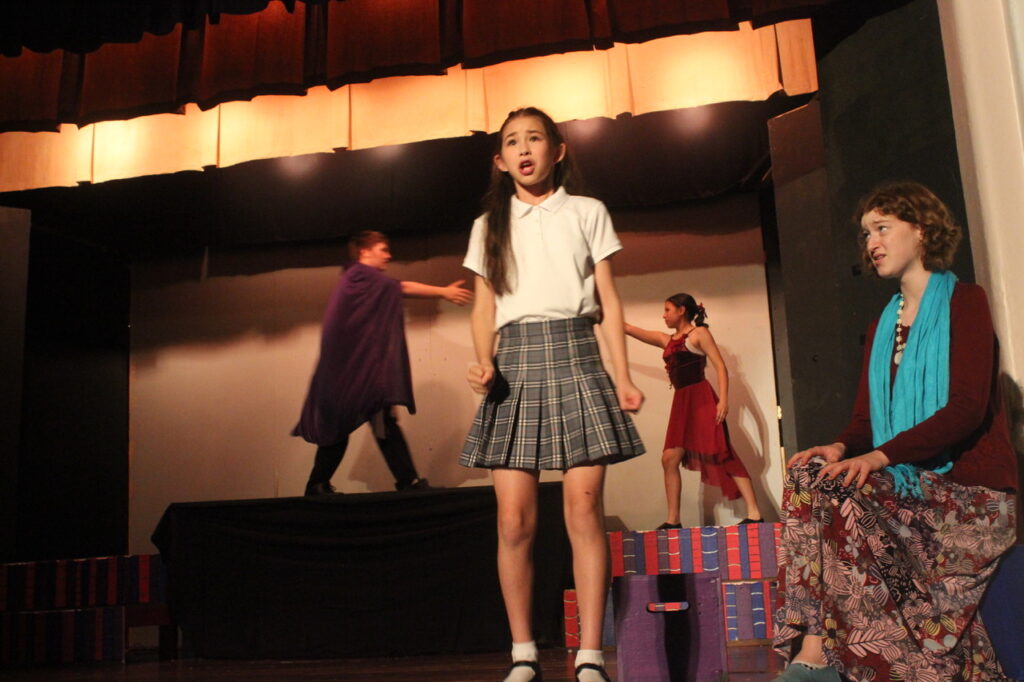
Matilda has been entrancing the local librarian (Mali Cloeter) with a story of an escapologist (Liam Close) his acrobat wife (Claire Nelson). The actors stage the story in background as Matilda tells it. The story just comes to her in pieces, and each time she must pause the narrative it is much to the librarian’s chagrin.
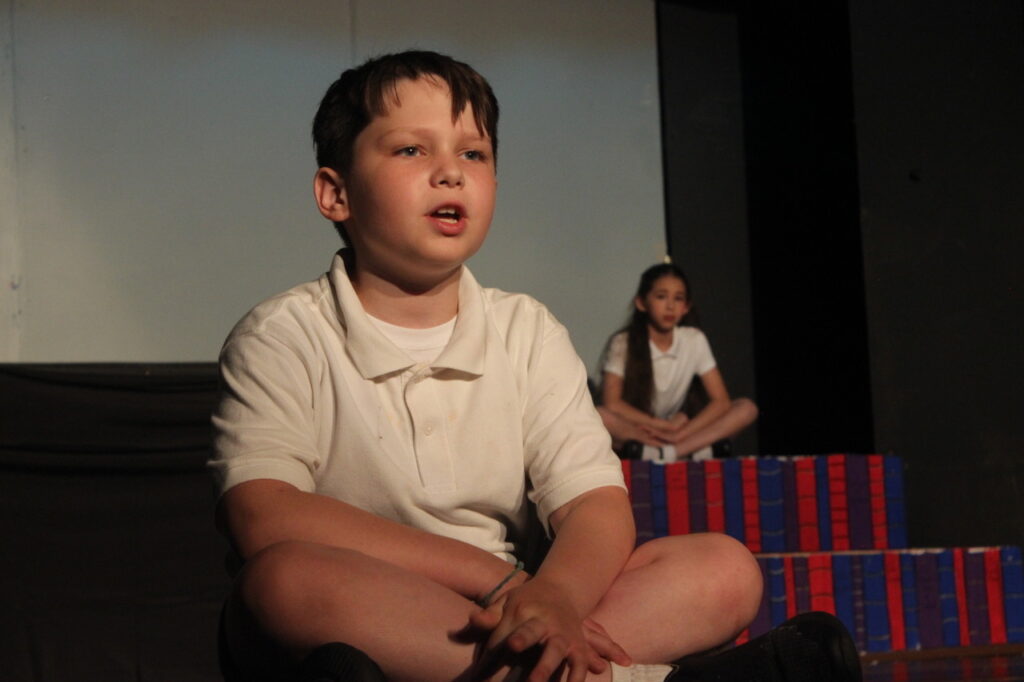
The chorus displays esprit de corps. They do a great job with the large-scale numbers, especially the ones made to seem chaotic. Once pulled together by the quiet leadership of Matilda, Trunchbull doesn’t stand a chance.
As Matilda knows, not all stories have happy endings. “Matilda the Musical” does. The audience will certainly be pleased to see how their little miracles have told the tale.



